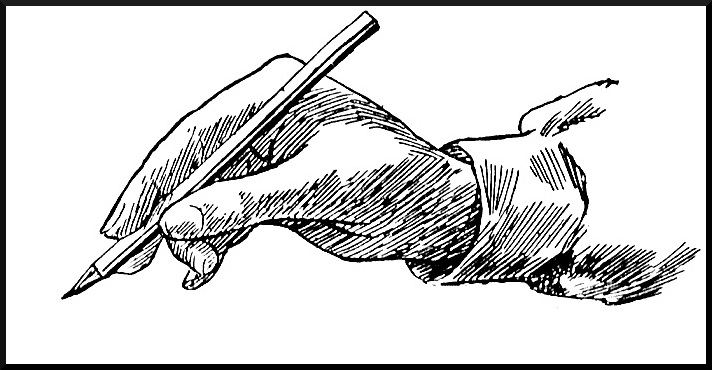Ernest Hemingway? Arnold Samuelson? Apocryphal?

Question for Quote Investigator: The life of a famous writer is exhaustively scrutinized by academics who attempt to delineate the young scribe’s growth and maturation. Yet, the typical writer does not wish to be placed under a microscope. Apparently, a prominent author once said:
It’s none of their business that you have to learn to write. Let them think you were born that way.
These words have been attributed to Ernest Hemingway. Would you please help me to find a citation?
Reply from Quote Investigator: Ernest Hemingway died in 1961, and the first published evidence of this remark known to QI appeared in the 1984 posthumous memoir “With Hemingway: A Year in Key West and Cuba” by Arnold Samuelson. In 1934 the nineteen-year-old Samuelson journeyed to Key West, Florida to meet with Hemingway whose works had made a deep impression on the youth. Hemingway needed a deckhand for his fishing boat, The Pilar, and Samuelson accepted the job because he saw an opportunity to have an incomparable literary tutor. He worked with Hemingway for ten months.
Samuelson created a manuscript that recorded his experiences, but it was not published during his lifetime. When he died in 1981 his daughter inherited the document and edited it for publication which occurred in 1984. In the following excerpt Samuelson referred to the acclaimed author as E.H.:1
When E. H. was in the mood to talk about writing was the happiest time I had, and now he was at the wheel steering over the reef toward Sand Key lighthouse and I stood beside him in the open doorway to the cabins.
Hemingway told Samuelson that his early submissions to magazines were largely rejected. He also described a pivotal event in his genesis. When Hemingway left Paris he placed crucial manuscripts in a suitcase, but the suitcase was misplaced during transit by his wife. Boldface has been added to excerpts:2
I had lost two year’s work, and once I write a thing and get it the way I want it I forget about it and can’t remember it afterward. I didn’t realize it then, but that was the most fortunate thing that could have happened to me, because now the critics don’t know what I wrote first and they can’t trace my development. It’s none of their business that you have to learn to write. Let them think you were born that way.
The above tale was written while the conversation was still fresh in the mind of Samuelson. The accuracy of this anecdote is dependent on the probity of Samuelson and his daughter.
Below are additional selected citations in chronological order.
In 1985 “The New York Times” printed an excerpt from “With Hemingway” in their “Book Review” section. The passage included the quotation under examination; hence, the statement achieved further circulation. The excerpt was introduced with the following:3
Toward the end of his life Ernest Hemingway saw himself as a father figure to younger writers. In Arnold Samuelson’s “With Hemingway” (Holt, Rinehart & Winston), “Papa” talks about the rejections most beginning writers have to expect and about how his wife’s carelessness may have helped him confound the critics.
In 1988 “Simpson’s Contemporary Quotations” contained the following entry:4
It’s none of their business that you have to learn how to write. Let them think you were born that way.
On loss of a suitcase containing work that would have enabled critics to trace his first two years as a writer, quoted by Arnold Samuelson With Hemingway Random House
In 2013 “The Biteback Dictionary Of Humorous Literary Quotations” compiled by Fred Metcalf contained the following entry:5
It’s none of their business that you have to learn to write. Let them think you were born that way.
Ernest Hemingway
In conclusion, this quotation appeared in a book published by Arnold Samuelson who heard the remark from Ernest Hemingway during a conversation circa 1934. Samuelson recorded the remark, but his manuscript was edited and released fifty years later in 1984. Thus, the accuracy of the quotation is dependent on Samuelson’s veracity.
Acknowledgement: Great thanks to Sandy Lawrence whose inquiry on this topic appeared in the April 2025 issue of Nigel Rees’s periodical called “The Quote…Unquote Newsletter”. This inquiry led QI to formulate this question and perform this exploration.
Image Notes: Public domain illustration of a hand writing a message from a 1912 edition of “The Book of Knowledge” published by The Grolier Society. Image has been resized.
- 1984, With Hemingway: A Year in Key West and Cuba by Arnold Samuelson, Quote Page 36, Random House, New York. (Verified with hardcopy) ↩︎
- 1984, With Hemingway: A Year in Key West and Cuba by Arnold Samuelson, Quote Page 36, Random House, New York. (Verified with hardcopy) ↩︎
- 1985 November 10, New York Times, Section: The New York Times Book Review, Noted With Pleasure: A Suitcase Full of Stories, Quote Page BR63, Column 2, New York. (ProQuest) ↩︎
- 1988, Simpson’s Contemporary Quotations, Compiled by James B. Simpson, Section: Literature – Writers & Editors, Person: Ernest Hemingway, Quote Page 309, Column 1, Houghton Mifflin Company, Boston. (Verified on paper) ↩︎
- 2013, The Biteback Dictionary Of Humorous Literary Quotations, Compiled by Fred Metcalf, Chapter W: Waugh to Writing – Advice, Quote Page 250, Biteback Publishing, London. (Verified with scans) ↩︎